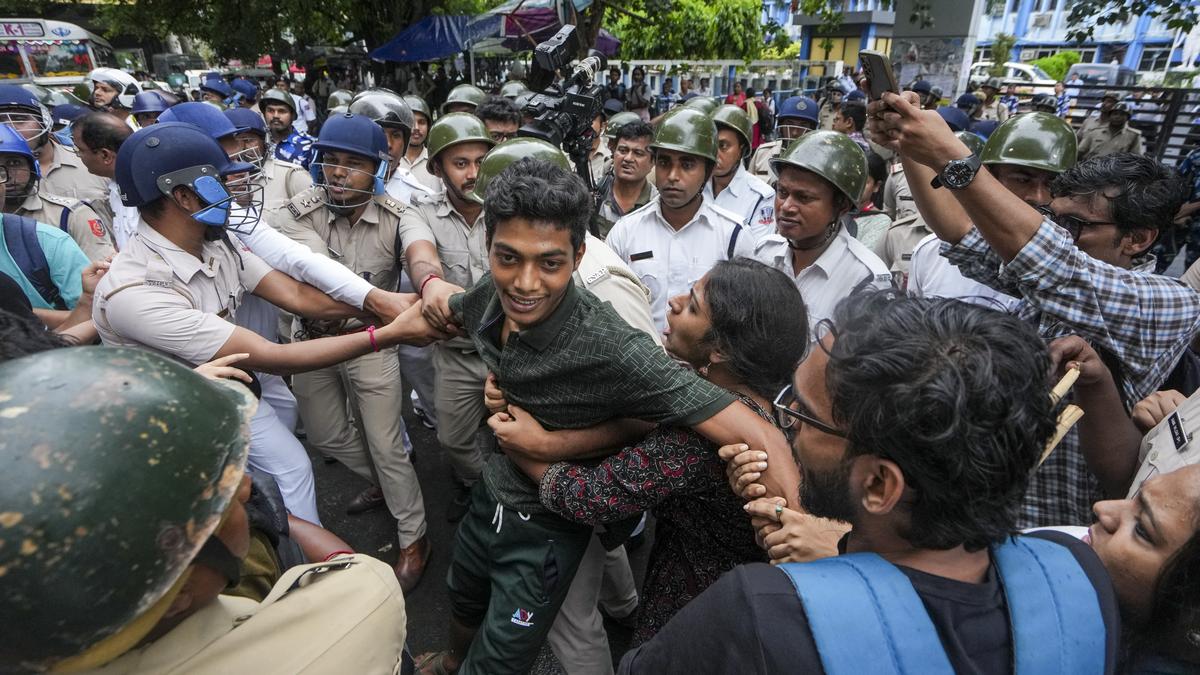Around 45 participants aged between 13 and 25 from across Maharashtra came together in Mumbai on Friday (August 22, 2025) to take part in a climate consultation aimed at shaping India’s contribution to the global climate agenda at COP30, scheduled for November in Brazil.
Organised by the Indian Youth Climate Network (IYCN) in partnership with UNICEF India and Sattvic Soul Foundation (SSF), the session formed part of the Local Conference of Youth (LCOY) India 2025 city consultation series. The day-long consultation was hosted by All India Institute of Local Self-Government office in Andheri with support from local partners, including Agro Rangers, National Service Scheme, Pratyek’s NineIsMine platform, Mazi Vasundhara, and the Maharashtra State Climate Action Cell.

These consultations are aimed at gathering perspectives from participants across multiple cities to draft the Indian National Youth Statement, which will represent India’s priorities and proposals at COP30.
In Mumbai, the participants engaged in participatory workshops and interactive sessions with local experts, co-developing policy recommendations based on local environmental challenges. Discussions focused on urban flooding, heat waves, biodiversity loss, water efficiency, urban resilience, and sustainable development, with solutions aligned to Maharashtra’s State Action Plan on Climate Change (SAPCC).
“Each consultation aims to elevate participants as critical agents of change in addressing the climate crisis,” said Pakhi Das, facilitator of LCOY Mumbai. “Our inclusive and localised sessions focus on lived experiences, just transitions, urban resilience, nature-based solutions, and youth empowerment.”
Highlighting Mumbai’s vulnerabilities, Shreya Sahe, an intern with Mazi Vasundhara, said, “With its dense population and rapid growth, Mumbai must prioritise sustainable mobility, efficient waste management, and biodiversity protection. Circular economy practices and climate-resilient planning are key to combating air pollution, heat waves, and land degradation.”

Yusuf Kabir, WASH-CCES (Water, Sanitation, and Hygiene - Climate Change and Environmental Sustainability) specialist and DRR (Disaster Risk Reduction) focal point at UNICEF Maharashtra, added, “The Government of Maharashtra’s initiatives like Mazi Vasundhara and youth platforms such as Maharashtra Youth for Climate Action, NSS, NineIsMine, and Green Clubs are creating the right ecosystem. By integrating the Children’s Climate Risk Index into social sector planning, we can enable evidence-based policies aligned with COP30 goals.”
The Mumbai consultation is part of a broader series taking place in Hyderabad, Jaipur, Patna, Guwahati, and other cities. The recommendations from all consultations will be consolidated into India’s National Youth Statement, which will contribute to the Global Youth Statement presented at COP30 under YOUNGO, the official youth constituency of the UNFCCC (The United Nations Framework Convention on Climate Change).



.png)
.png)
.png)
















 2 hours ago
3
2 hours ago
3








 English (US) ·
English (US) ·